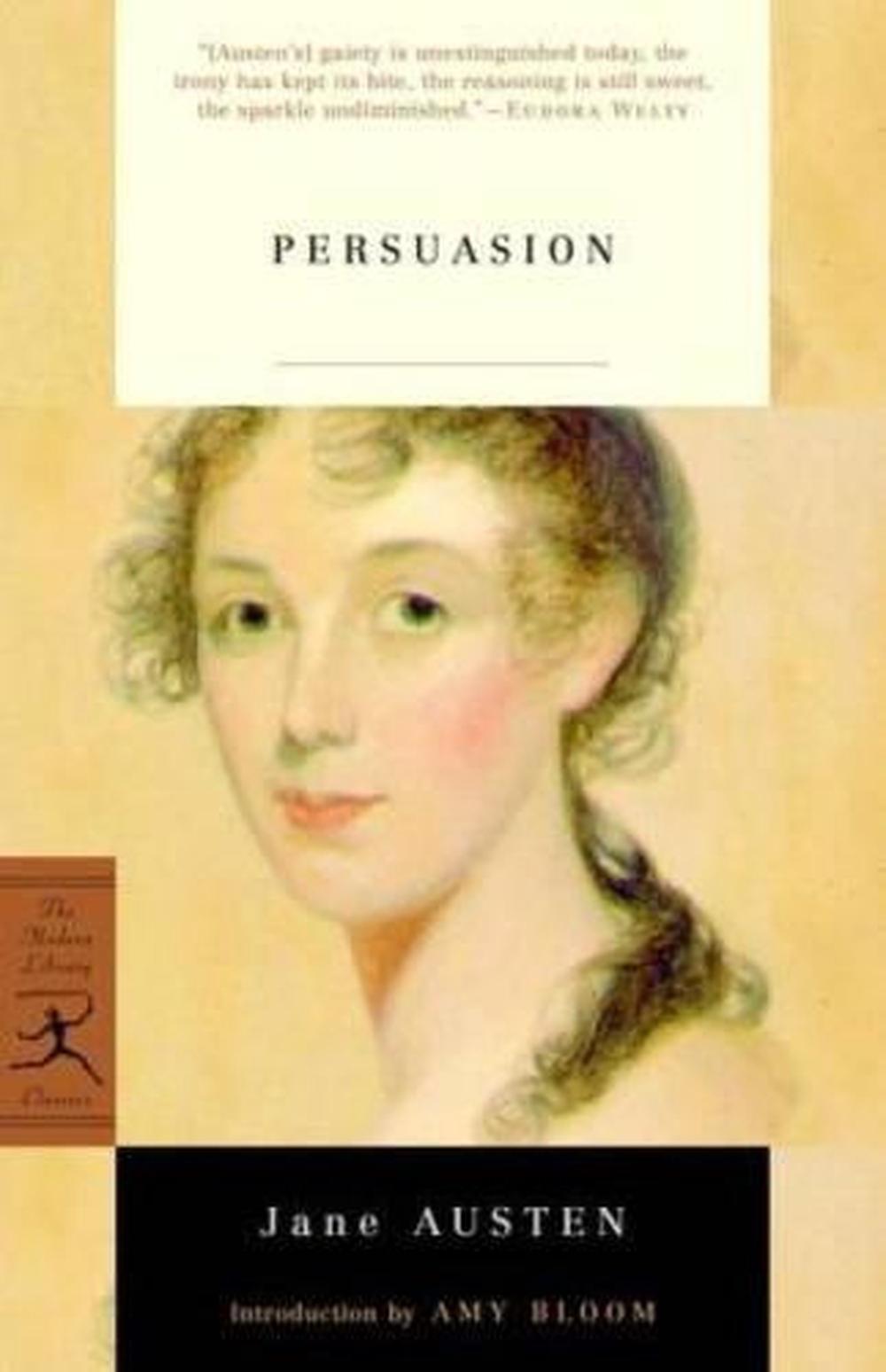
Persuasion
$19.20
- Paperback
256 pages
- Release Date
14 June 2001
Summary
Persuasion: A Second Chance at Love
Anne Elliot, a spinster at twenty-seven, navigates a life of familial duty and fading fortunes. Eight years prior, she was persuaded to break off her engagement with Frederick Wentworth due to his lack of wealth and prospects. Now, fate reunites them: Wentworth, a decorated naval captain with a fortune, and Anne, facing the enduring flame of her past love. Can Anne find the courage to defy expectations and seize a second chance at happiness, or wi…
Book Details
| ISBN-13: | 9780375757297 |
|---|---|
| ISBN-10: | 0375757295 |
| Author: | Jane Austen, Uzma Jalaluddin |
| Publisher: | Random House USA Inc |
| Imprint: | Modern Library Inc |
| Format: | Paperback |
| Number of Pages: | 256 |
| Edition: | New edition |
| Release Date: | 14 June 2001 |
| Weight: | 221g |
| Dimensions: | 202mm x 133mm x 14mm |
| Series: | Modern Library Torchbearers |
You Can Find This Book In
What They're Saying
Critics Review
“Critics, especially [recently], value Persuasion highly, as the author’s ‘most deeply felt fiction,’ ‘the novel which in the end the experienced reader of Jane Austen puts at the head of the list….’ Anne wins back Wentworth and wins over the reader; we may, like him, end up thinking Anne’s character ‘perfection itself.’” –from the Introduction by Judith Terry
About The Author
Jane Austen
Jane Austen was born in Steventon, Hampshire, on December 16, 1775. Her father, the Reverend George Austen, was rector of Steventon, where she spent her first twenty-five years, along with her six brothers (two of them later naval officers in the Napoleonic wars) and her adored sister, Cassandra. She read voraciously from an early age, counting among her favorites the novels of Samuel Richardson, Henry Fielding, and Fanny Burney, and the poetry of William Cowper and George Crabbe. Her family was lively and affectionate and they encouraged her precocious literary efforts, the earliest dating from age twelve, which already displayed the beginnings of her comic style. Her first novels, Elinor and Marianne (1796) and First Impressions (1797), were not published. The gothic parody Northanger Abbey was accepted for publication in 1803 but was ultimately withheld by the publisher.
In 1801 the family moved to Bath, where for four years Austen was able to observe the fashionable watering place that would later figure prominently in her fiction. Austen was sociable in her youth, and was briefly engaged in 1802. Two years later she began work on The Watsons, a novel that remained unfinished. After the death of her father in 1805, she lived with her mother and sister in Southampton for a few years before moving with them to a cottage at Chawton in Hampshire. This would be her home for the rest of her life, and she wrote many of her novels in its parlor. She continued to revise her earlier unpublished work, and in 1811 a version of Elinor and Marianne was published as Sense and Sensibility, followed two years later by Pride and Prejudice, a reworking of First Impressions. In the next few years she published Mansfield Park (1814) and Emma (1816).
Austen became ill in 1815, perhaps with Addison’s disease, and she died on July 18, 1817. Persuasion, her last novel, and the earlier Northanger Abbey appeared the following year. Of her last days her brother wrote- ‘She wrote whilst she could hold a pen, and with a pencil when a pen was become too laborious. The day preceding her death she composed some stanzas replete with fancy and vigour.’ Although Austen received some praise from her contemporaries–notably Sir Walter Scott, who discerned in her work ‘the exquisite touch, which renders ordinary commonplace things and characters interesting, from the truth of the description and the sentiment’–her detractors included Charlotte Bronte (‘very incomplete and rather insensible’) and Ralph Waldo Emerson (‘vulgar in tone, sterile in artistic invention’), and her books did not immediately find a wide readership. The turn in her reputation came late in the nineteenth century, and has been succeeded by an enduring popularity and widespread critical praise in the twentieth.
Returns
This item is eligible for free returns within 30 days of delivery. See our returns policy for further details.




